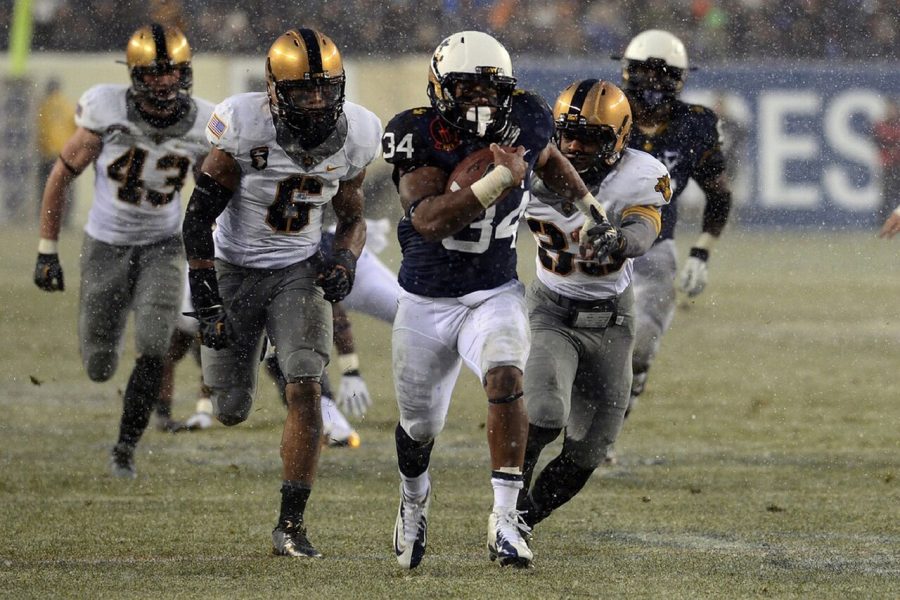Colleges should not pay football players
College football fans continue to argue whether the athletes should be paid. After Joey Bosa withdrew from school to focus on the NFL Draft following an injury, the argument was brought back up.
Just three weeks into the college football season, Ohio State’s All-American defensive end Nick Bosa was ruled out due to a core muscle injury and given no time table for his return. Instead of continuing to be part of the team, he decided to leave school and focus on rehabilitation to be ready for the 2019 NFL Draft.
Situations like these, which are becoming more common, bring up the highly controversial question once again: should college football players be paid?
These athletes are risking life-altering injuries every time they step on the field. They are making a profit for the school they attend when fans buy tickets to see them play on Saturday afternoons, and they are advertising for brands such as Nike, Adidas and Under Armor every time they put on their uniform.
However, despite these things, unless they walk-on, these young men are on full-ride scholarships. Full scholarships cover their tuition, fees and course-related books and give them a stipend for living expenses. They are given tutors for their courses as well as fully paid meal plans and medical care.
They have the opportunity to complete their undergrad and gain professional experience for no cost, which is something students who do not have the athletic capabilities can only dream about. They do not have to worry about leaving college and having to make money to pay off student loans that they acquired.
Although colleges and universities generate a profit from sporting events that the athletes partake in, they would not be able to afford to pay hundreds of thousands of dollars in annual salary to a roster of up to 85 players on scholarship. In order to find money to pay for these salaries, colleges would have to make cuts elsewhere, whether that be other sports or facilities.
To add to this, not every school has the same budget, so each school would have a different salary that they would be able to award to their players which would affect recruiting. Recruits would be more likely to choose to attend the school that pays their players the most.
And from there, where would you draw the line? Just because a player is on scholarship does not guarantee him any playing time. Would you pay starters the same amount as players that stay on the bench most of the season?
This also leads to the issue of fairness. How do you justify paying the young man on the football field, when there is a young woman across the street from the football facility on the soccer field putting in hours but not getting a penny?
However, we are forgetting the true meaning of collegiate football. There are two reasons athletes decide to dedicate their lives to the sport: their love of the game and their desire to go pro. By paying these players, the heart of the college football industry would be ruined because the players wouldn’t have to make it to the NFL to make a living.


